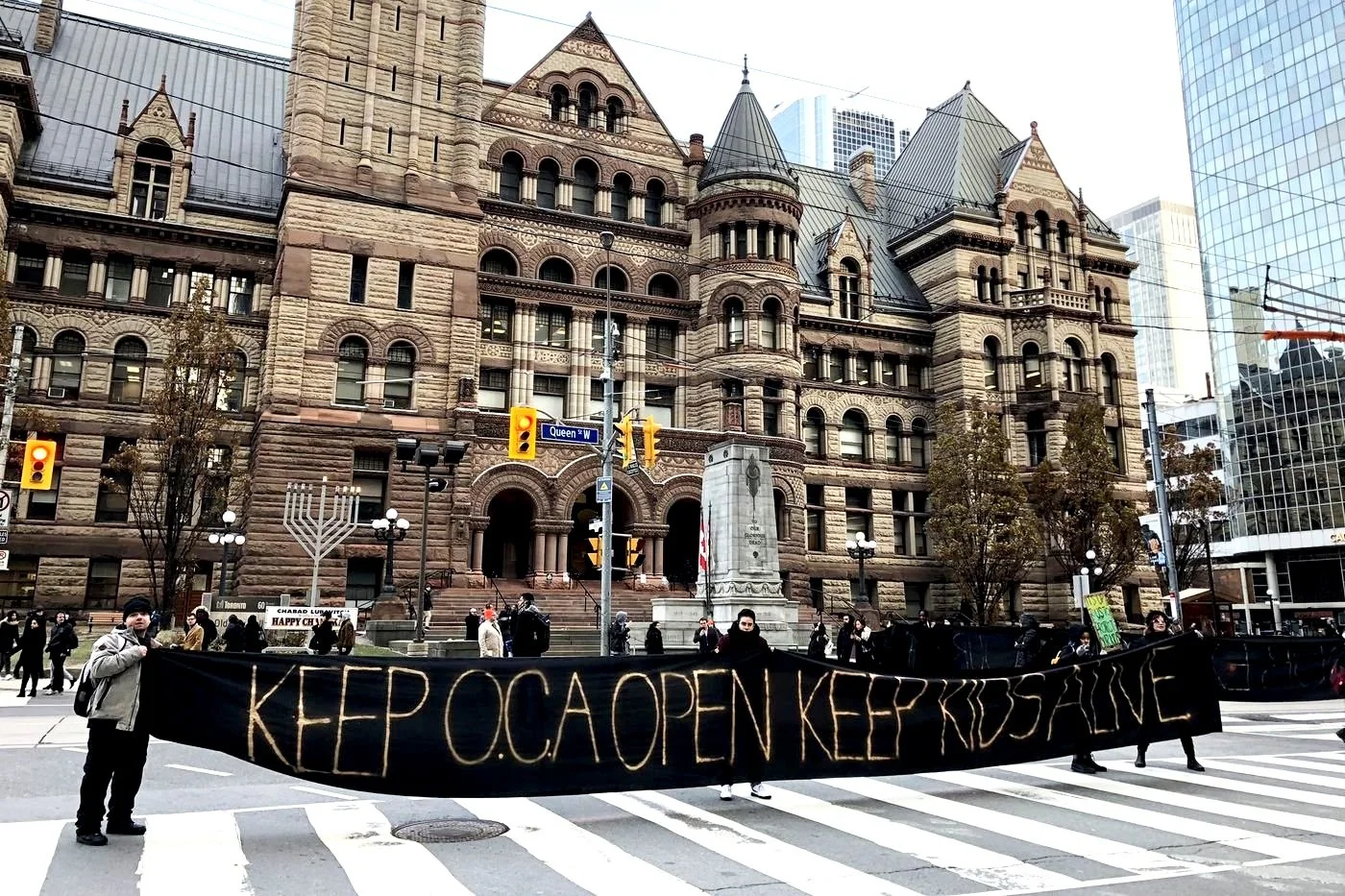
Systemic Organizing
Systemic Organizing is one of the core pillars of the Collective of Child Welfare Survivors .
Systemic organizing means any form of collective advocacy, campaign, or mobilization that addresses the systems harming child welfare survivors whether those systems are legal, institutional, cultural, or rooted in colonial violence.
Our work includes both long-term campaigns and urgent public responses to individual experiences that reflect broader systemic issues.
What We Mean by “Systemic”
We’re talking about:
The over-surveillance of Black, Indigenous, and racialized families
The institutional barriers youth face when aging out of care
Displacement and erasure through adoption and foster care systems
The criminalization and deportation of child welfare survivors
When we say systemic, we mean patterns not isolated events.
Systemic organizing allows us to name, disrupt, and transform these structures together.
What It Can Look Like
Systemic organizing at CCWS takes many forms:
Long-term campaigns for systemic or policy change
Emergency public response to individual injustices (like a deportation or family separation)
Community-led research and storytelling projects
Public letters, protest, or media-based advocacy
Collaborative coalition and collective work
Creating tools and resources to build community power
Sometimes the issue is big and structural. Sometimes it’s a single story that reveals everything.
Centering Survivor Leadership
Our organizing is led by survivors especially Black, Indigenous, racialized, queer, trans, and disabled child welfare survivors.
We don’t speak on behalf of survivors , we organize with them, and often as them.
Reports & Publications
Our systemic work is grounded in lived experience, survivor wisdom, and research. We develop and share tools that expose harm and propose change.
Position Paper: Rethinking Permanency Planning
In response to Ontario’s child welfare reforms, CCWS released this position paper to challenge how permanency planning is discussed and implemented. We highlight how public consultations often repeat the same questions without meaningful change — especially for Black, Indigenous, and racialized survivors. This paper calls for a shift toward survivor-centered, radically ethical approaches grounded in lived experience.
Research Report: The Forgotten Ones
This report explores how COVID-19 restrictions deepened the harm experienced by Black child welfare survivors and families in Ontario. Based on survivor and community insights, it reveals how the pandemic compounded systemic anti-Black racism in child protection—often under the guise of safety.
The report highlights how restrictions led to prolonged separation, harmful placements, and the disappearance of already-limited supports for Black families. It also raises serious concerns about whether Ontario’s child welfare system ever meaningfully serves the best interests of Black children.
Key Findings:
COVID-19 worsened existing carceral conditions for Black survivors
Families were blamed for pandemic-related ruptures
Black children were left in harmful placements despite awareness by legal actors
Anti-Black racism persisted, even within so-called equity initiatives
External Black advocacy groups-not CAS, were critical in protecting families
Who We Organize With
We build power alongside others. CCWS is proud to work in coalition with grassroots organizers, mutual aid networks, and collectives fighting for justice in care systems, education, immigration, health, and housing.
Anti-Family policing Network
Ontario Anti-Black Racism in Education Steering Committee
Border(ing) Practices
Our System Our Children Our Responsibility ‘OSOCOR’
Some of our recent and ongoing collaborations include:
Whether you’re a survivor, a student, a frontline worker, a researcher, or a community member , you have a role in systemic change.
Want to Join In?
Join a campaign
Share your story
Attend a circle or action
Help us build or research
Organize in your own community


